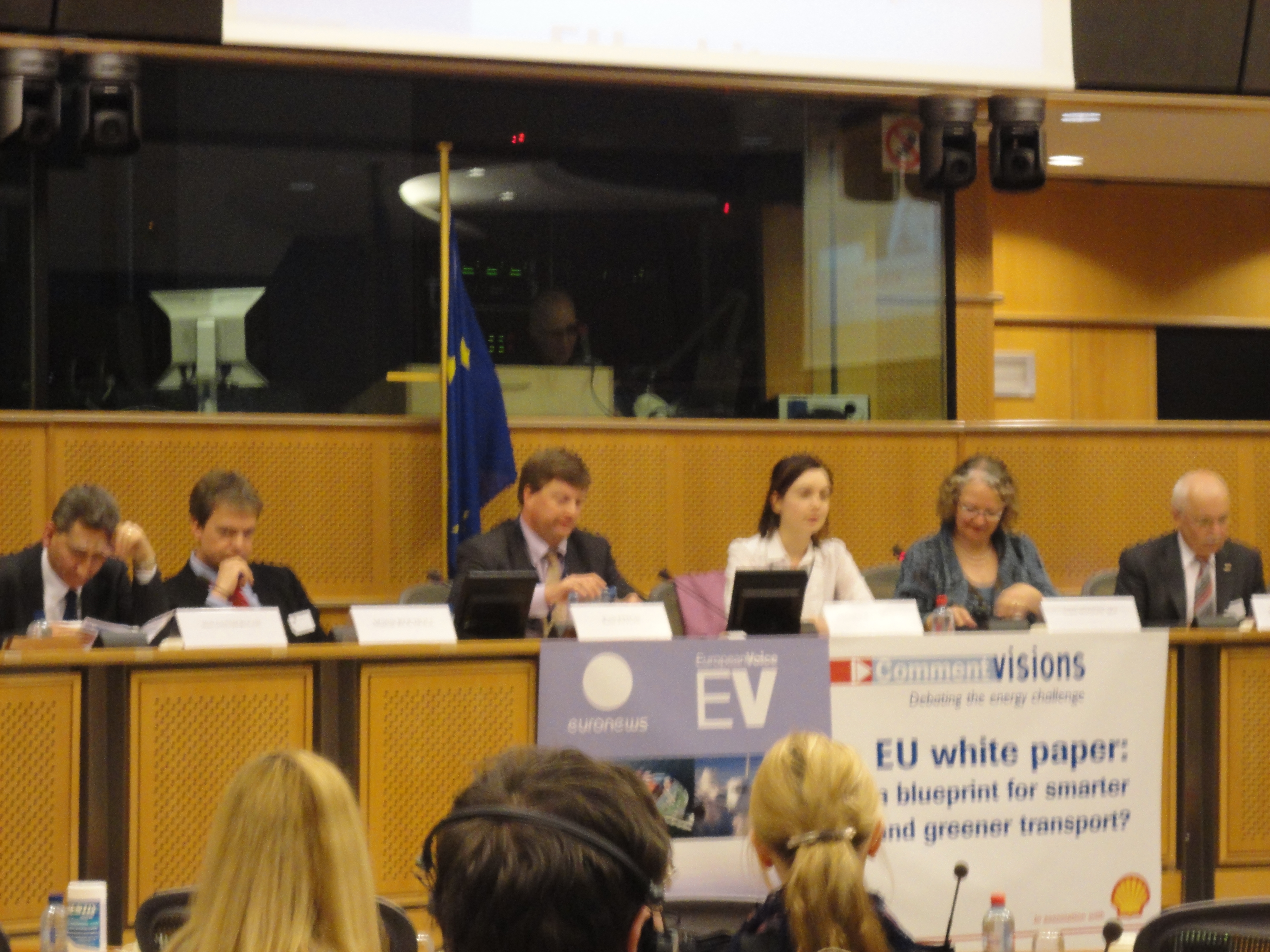On 29th of March 2011, under the patronage of Comment: Visions, a debate on the newly adopted EU white paper on transport was launched at the European Parliament. The moderator, Jennifer Rankin, introduced the topic – “the demand for transport while maintaining the Environment”. The panel discussion was lively and concentrated on the future of transportation – EU dependency on oil, reduction of emission and model shift from road to rail.
Debate
Keir Fitch emphasized that the Commission does not intend to ban cars. On the contrary, transport is an important aspect of what the European Union is all about – free movement. Without proper transportation the concept of free movement of people and goods might be lost. The problem today is the dependency on oil, a resource that will be limited in the future, today we have 96% dependency, and therefore we must act now in order to preserve future transport. We must plan today for the future, planning infrastructure and means of transport take time, what we start building today will be used in the future, and we need to aim for a future which is not dependent on oil. The white paper sends a clear message that we must change transport in order to preserve mobility. Today, we are aiming for 80% emission reduction by 2050; the measures we are using are similar to the measures needed for 90% reduction. However, we are aiming for 80% as we can fine-tune the percentage in the future.
MEP Gesine Meisner appreciated the comment on transport as the European Union’s backbone; there will be no internal market without transportation. People should be told more about green transport in order to change their transport preferences.
Martin Rocholl explained that the white paper is good but underestimates the challenge ahead in climate change and therefore is not ambitious enough. The new initiatives introduced in the white paper such as model shift from road to rail, fewer cars in cities and polluter pay are good but how concrete the EU competency is to make things happen. Rocholl suggested introducing new technologies by giving smart subsidies. When it comes to model shift, we need to invest less in roads but more in trains, people don’t see car as they used to see it; people now concentrate on the most comfortable way to reach places.
Richard Aumayer emphasized the importance to reduce CO2 emission within all sectors, not just transport. But when it comes to transport, people need to be convinced to change their old car to new technology. It is not just finding the technology; it is about convincing people to use it. Further, in order to achieve proper use of new technology, such as recharging facilities, we should have a European level of standardization in order to avoid systems which are not interoperable with each other in different countries.
Participants:
-
Jennifer Rankin, energy and environment correspondent for the newspaper European Voice
-
Keir Fitch, deputy head of cabinet of Siim Kallas, vice president in charge of transport, European Commission, responsible for the white paper within the cabinet
-
MEP Gesine Meisner, ALDE co-ordinator in the transport committee, European Parliament
-
Martin Rocholl, policy director & programme director, transport, European Climate Foundation
-
Richard Aumayer, director, central division external affairs, governmental and political relations, Robert Bosch GmbH
-
Mark Gainsborough, executive vice-president, strategy, portfolio and alternative energy, Shell


No responses yet